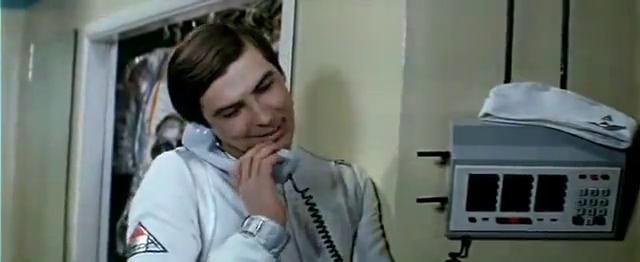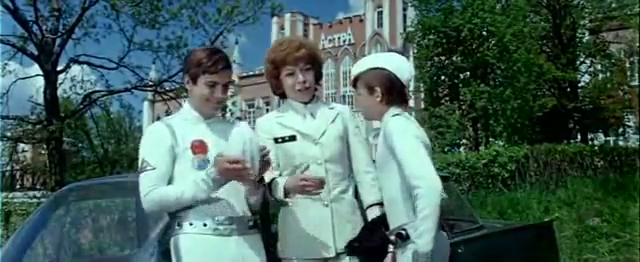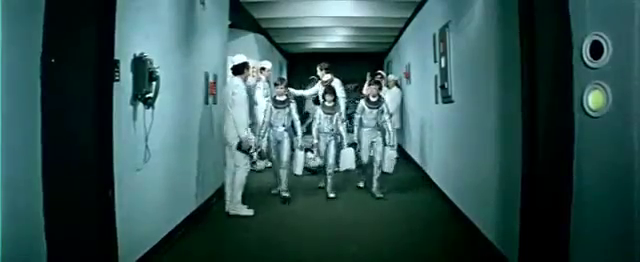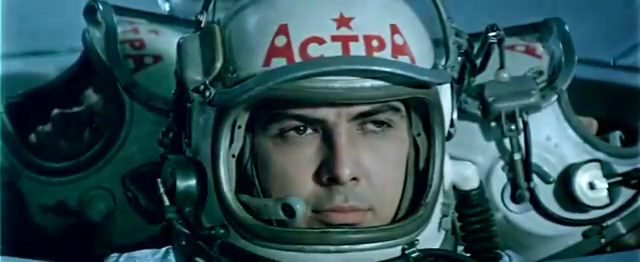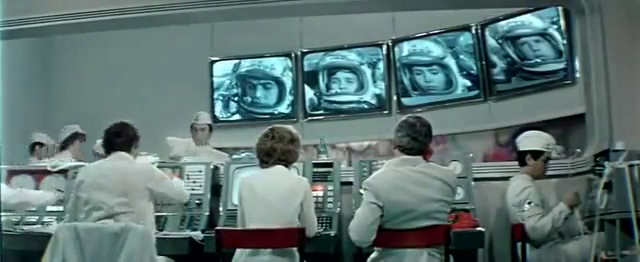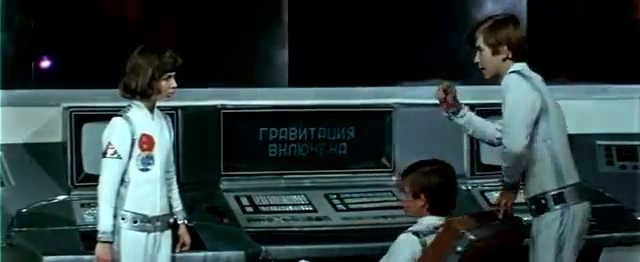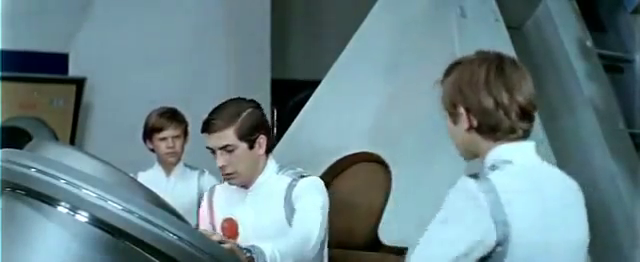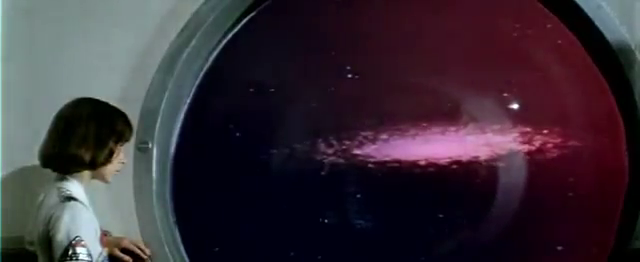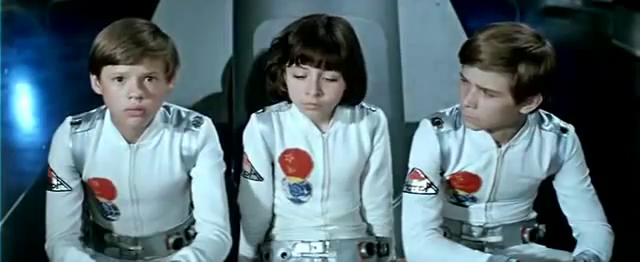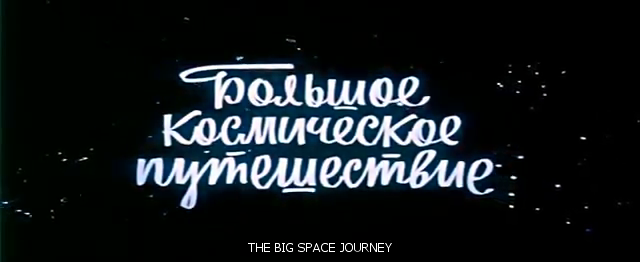
#459 – A Great Space Journey (1974)
A Great Space Journey (1974)
Film review #459
Director: Valentin Selivanov
SYNOPSIS: The All-Union Children’s Space Competition aims to find three children that will be the first youths in space aboard a new spaceship. Sveta, Sasha and Fedya are chosen from the one hundred thousand applicants to embark on the mission with the sole adult on board, Captain Egor Kalinovsky. After the ship is launched, Egor is found to be sick, and placed in quarantine, leaving the children in charge of the spaceship…
THOUGHTS/ANALYSIS: A Great Space Journey is a 1974 children’s science-fiction film based on the play The First Three, or the Year 2001 by Sergey Mikhailov. The film opens up introducing a space program that will choose three children to be the first young people in space. Out of one hundred thousand applicants from across the Soviet Union, three children are selected: Sveta Ishenova, Sasha Ivanenko, and Fedya Druzhinin. The three are sent into space on the spaceship Astra with the only adult on the voyage, Captain Egor Kalinovsky, who is in charge of the mission. When Egor is found to have a fever, that may spread to everyone else, he is placed in quarantine, leaving the children having to take charge of the ship and the mission. The story is fairly simple, being a film aimed at children, and is fairly light on the details concerning what the mission they are on actually is. Nevertheless, there is plenty that is going on in the film, as the children have to navigate through a fair amount of emergencies and strange situations as their journey continues. Not having an overarching objective hinders any sense of direction and accomplishment the film has, but nevertheless, there’s a good sense of adventure and enough variety to capture viewer’s imaginations. There’s a bit of a twist in the story that explains most things at the end, but I’ll discuss that at the end too.
The three main characters are the children that were chosen through the space program. Each of their characters are developed through flashbacks to when they were undergoing the testing, highlighting their relationships with their parents and each other. There’s also Egor, the only adult on the spaceship, who is placed in quarantine, but can still communicate to the others. One of the children, Fedya, is placed in command of the mission after Egor is quarantined, and it is hinted that he is troubled by something about the mission, but refuses to disclose it. Sasha is very animated, and teaches the other children dance moves to keep them entertained. Sveta is more headstrong and quick to rush into situations (contrasting with Fedya’s more reserved nature) and perhaps has some romantic feelings for Sasha. Between the three children, they have a good range of personalities, and at least one of them will appeal to children that the film was aimed at. Their interactions feel genuine in this extraordinary situation, and are generally likeable in their own way. There’s also a good balance between the children needing to act like adults, and also like children; such as when they complete their task running the spaceship, and immediately go get some ice cream from a nearby fridge.
The ending of the film reveals that the entire mission is actually just a simulation for the children to test their abilities. Fedya initially works it out, but keeps it secret for the remainder of the mission. You might think this is a bit underwhelming and disappointed that the children do not actually go into space…and in fact, that’s why actual soviet cosmonaut Alexey Leonov appears at the end of the film saying this exact thing. He also says that the time will come soon (?) when children will really go into space, and encourages children to continue looking forward to it and chasing their dreams, which is nice. The film also rewards the children for the completion of the simulation with a celebration and fanfare, so it still feels rewarding, and as if the characters accomplished something.
The quality of the sets and production values of the film certainly deserve some mention. The set of the spaceship is detailed, and the shots of the ship travelling through space are quite convincing given the time it was released. the model shots of the spaceship and other things also have quite a lot of detail in them. The whole aesthetic evokes the look of 2001: A Space Odyssey, which I’m sure is no coincidence. Given that the play the film is based on is called The First Three, or the Year 2001, it would certainly there’s a connection, but whether it is an homage, a parody, or knock-off, I’m not sure. The film was also apparently in production for two years, which I think shows in the look of the finished product. There’s also some musical interludes which don’t really fit in too well, but again probably something children would enjoy. Most notably, the song’s were written by a young Alexey Rybnikov, who would become one of the Soviet Union’s and subsequently Russia’s most famous composers, apparently in no small part due to the popularity of the soundtrack of this film.
Overall, A Great Space Journey is a fun little adventure that I’m sure its target audience would have enjoyed. The film is well constructed, and great effort had obviously been taken to make detailed and engaging sets. The characters themselves are relatable and distinct, without being too much of walking tropes, and the story has plenty of things going on in it, even if it lacks direction or purpose sometimes. It packs in a fair amount of detail and adventure in just over sixty minutes, and with some decent editing, always has something interesting going on.

